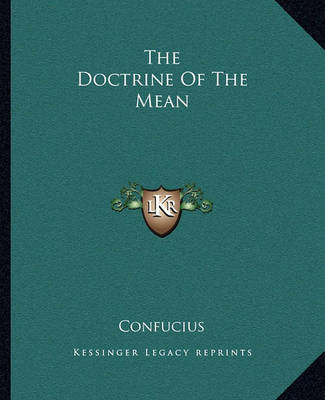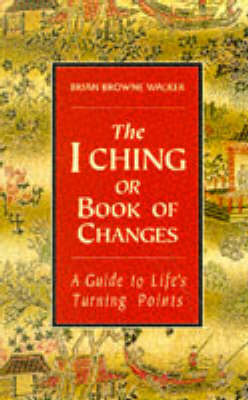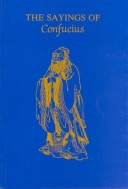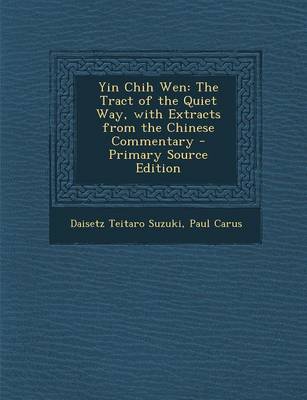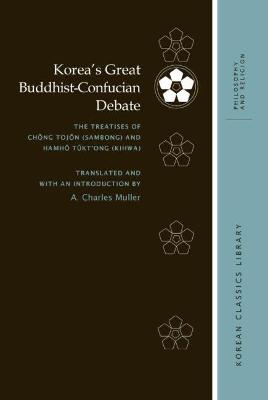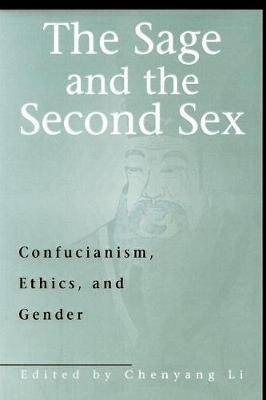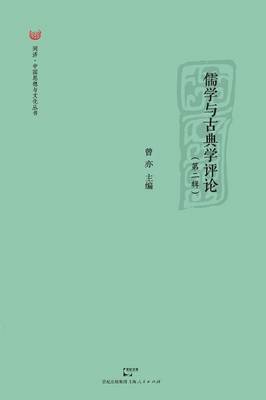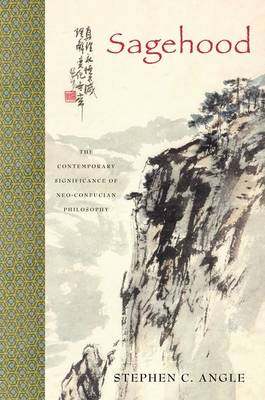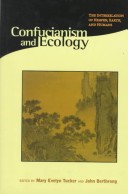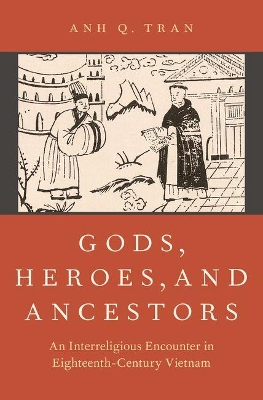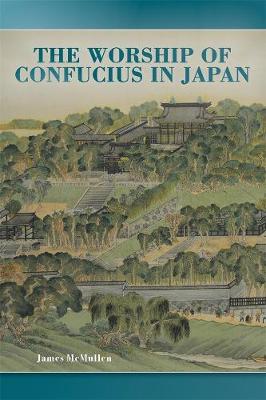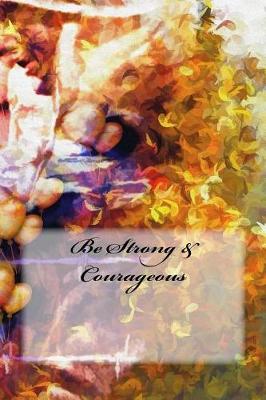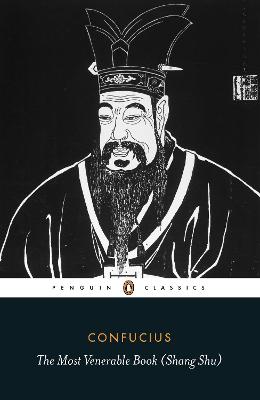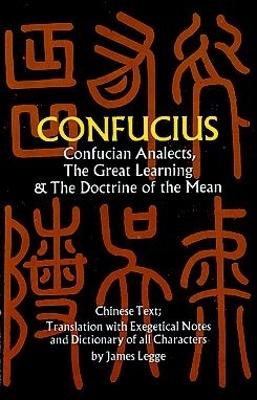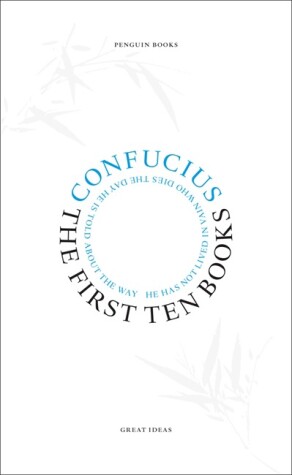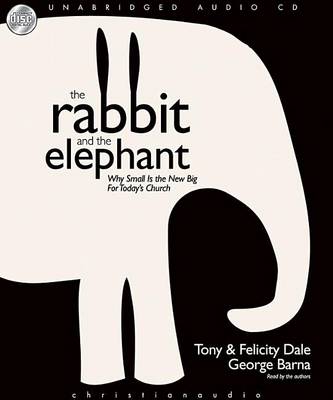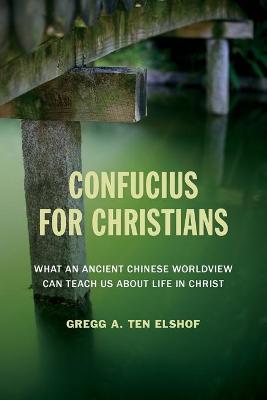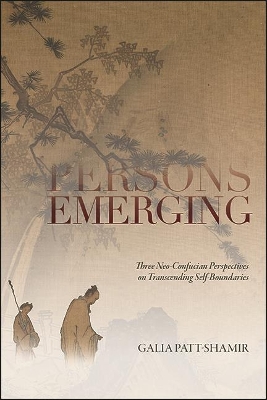Death Rituals and Politics in Northern Song China
by Lecturer Mihwa Choi
For centuries The I Ching or Book of Changes has been consulted for wise advice. The I Ching is more than just a book, it is a living, breathing oracle which you can consult at any time, whether you need specific advice or general guidance. The Chinese believe it will help to promote success and good fortune and to impart balance and perspective to your life. Brian Browne Walker's new, highly accessible translation of The I Ching allows you to make the wisdom of the ancient Chinese sages your ow...
Korea's Great Buddhist-Confucian Debate (Korean Classics Library: Philosophy and Religion)
This volume makes available in English the seminal treatises in Korea's greatest interreligious debate of the fourteenth and fifteenth centuries. On Mind, Material Force, and Principle and An Array of Critiques of Buddhism by Confucian statesman Ch?ng Toj?n (1342-1398) and Exposition of Orthodoxy by S?n monk Kihwa (1376-1433) are presented here with extensive annotation. A substantial introduction provides a summary and analysis of the philosophical positions of both Neo-Confucianism and Buddhis...
This volume offers new insights into the role of women in ancient China, their important contributions to society, and their pursuit of personal growth and fulfillment. The position that Confucianism may actually foster gender equity is particularly interesting in discussions of whether the Confucian worldview is degrading or repressive toward women.
Ratified by the Parliament of the World’s Religions in 1993 and expanded in 2018, "Towards a Global Ethic (An Initial Declaration)," or the Global Ethic, expresses the minimal set of principles shared by people—religious or not. Though it is a secular document, the Global Ethic emerged after months of collaborative, interreligious dialogue dedicated to identifying a common ethical framework. This volume tests and contests the claim that the Global Ethic’s ethical directives can be found in the w...
Neo-Confucianism is the sophisticated revival of Confucian theorizing, responding to challenges from Buddhism and Daoism, which began around 1000 C.E. and came to dominate the Chinese intellectual scene for centuries thereafter. What would happen if we took Neo-Confucianism and its central ideal of sagehood seriously as contemporary philosophy? Sagehood represents supreme human virtue: a flawless, empathetic responsiveness to every situation in which one finds oneself. How could this be possible...
Confucianism and Ecology (Religions of the World and Ecology)
by M E Tucker
Confucianism demonstrates a remarkable wealth of resources for rethinking human-earth relations. This second volume in the series on religions of the world and the environment includes sixteen essays that address the ecological crisis and the question of Confucianism from three perspectives: the historical describes this East Asian tradition's views of nature, social ethics, and cosmology, which may shed light on contemporary problems; a dialogical approach links Confucianism to other philosophi...
Gods, Heroes, and Ancestors (AAR Religion in Translation)
Though a minority religion in Vietnam, Christianity has been a significant presence in the country since its arrival in the sixteenth-century. Anh Q. Tran offers the first English translation of the recently discovered 1752 manuscript Tam Giao Ch(u V.ong (The Errors of the Three Religions). Structured as a dialogue between a Christian priest and a Confucian scholar, this anonymously authored manuscript paints a rich picture of the three traditional Vietnamese religions: Confucianism, Buddhism,...
The Worship of Confucius in Japan (Harvard East Asian Monographs)
by James McMullen
How has Confucius, quintessentially and symbolically Chinese, been received throughout Japanese history? The Worship of Confucius in Japan provides the first overview of the richly documented and colorful Japanese version of the East Asian ritual to venerate Confucius, known in Japan as the sekiten. The original Chinese political liturgy embodied assumptions about sociopolitical order different from those of Japan. Over more than thirteen centuries, Japanese in power expressed a persistently amb...
A wonderfully enjoyable storehouse of ancient Chinese history and legends, which also has an important role in understanding 21st-century China'And remember: Heaven's blessing will cease forever if there's despair and poverty in your lands'The Most Venerable Book (also known as The Book of History) is one of the Five Classics, a key work of Chinese literature which preserves some of the most ancient and dramatic chronicles of the history, both real and mythological, of the Chinese state. For man...
Confucian Analects, The Great Learning & The Doctrine of the Mean
by Confucius
Throughout history, some books have changed the world. They have transformed the way we see ourselves - and each other. They have inspired debate, dissent, war and revolution. They have enlightened, outraged, provoked and comforted. They have enriched lives - and destroyed them. Now Penguin brings you the works of the great thinkers, pioneers, radicals and visionaries whose ideas shook civilization and helped make us who we are.Perhaps the most widely read thinker of all time, Confucius transfor...
The Religions of China. Confucianism and Taoism Described and Compared with Christianity
by James Legge
Persons Emerging (SUNY series in Chinese Philosophy and Culture)
by Galia Patt-Shamir

